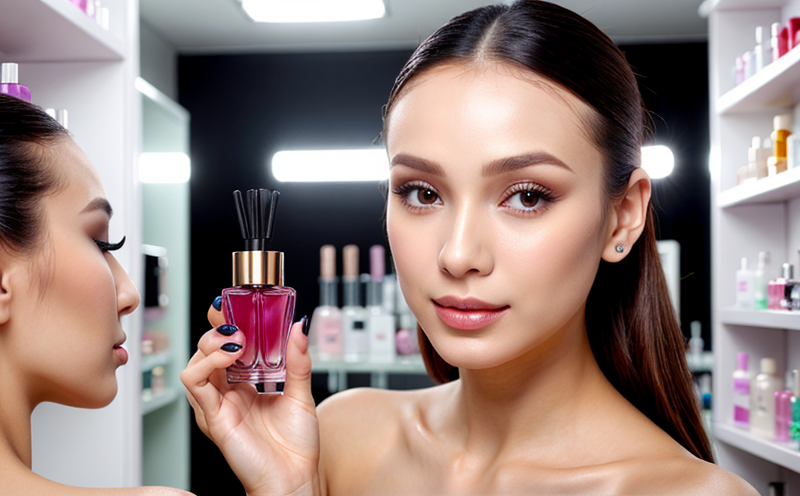Fragrance Allergen Content Testing in Cosmetics
Understanding the presence and concentration of potential allergens in fragrance formulations is paramount to ensuring product safety. The cosmetic industry has seen a significant increase in consumer sensitivity, with over 30 million Americans suffering from allergies each year (Source: Asthma and Allergy Foundation). This underscores the importance of rigorous testing to identify and mitigate any potentially harmful components.
Our laboratory specializes in providing comprehensive fragrance allergen content testing services. Our team of experts uses state-of-the-art analytical techniques, including high-performance liquid chromatography (HPLC), gas chromatography-mass spectrometry (GC-MS), and Fourier transform infrared spectroscopy (FTIR). These methods ensure precise quantification of common allergens such as limonene, linalool, and cinnamaldehyde.
Our testing process begins with a thorough review of the product formula to identify potential allergenic ingredients. Specimen preparation involves extracting these components from the sample using appropriate solvents. Once prepared, the samples undergo rigorous analysis to determine their concentrations accurately. Our comprehensive reports not only provide detailed results but also offer actionable insights for formulation adjustments.
The cosmetic industry is highly regulated, with several standards and guidelines in place to ensure product safety. Notably, the EU Cosmetics Regulation (EC 1223/2009) requires manufacturers to conduct allergen testing on certain fragrance ingredients. Compliance with such regulations helps brands avoid legal issues and enhances consumer trust.
Our expertise extends beyond mere compliance; we aim to provide a deeper understanding of how these allergens behave within the context of your products. By leveraging our extensive experience, we can guide you towards safer formulations that meet both regulatory requirements and market demands.
Scope and Methodology
Our fragrance allergen content testing service encompasses a wide range of common allergenic ingredients found in cosmetic fragrances. This includes, but is not limited to:
- Limonene (found in citrus-based scents)
- Linalool (a key component in floral notes)
- Cinnamaldehyde (often used in spicy or woody fragrances)
- Eugenol (commonly found in rose and cinnamon scents)
We follow stringent methodologies to ensure accurate results. Our approach includes:
- Thorough review of the product formula for allergen identification.
- Extraction techniques tailored to each ingredient type.
- Use of advanced analytical instruments such as GC-MS and HPLC.
- Analytical procedures that adhere to international standards like ISO 18765:2014 and ASTM E1930-17.
The results are reported in accordance with the required specifications, providing clear data on allergen concentrations. Our detailed reports also include recommendations for formulation adjustments if necessary, ensuring ongoing product safety and compliance.
Benefits
- Enhanced Safety: By identifying potential allergens early in the development process, you can eliminate risks before they impact your consumers.
- Regulatory Compliance: Our testing ensures that your products meet all necessary regulatory requirements, including EU Cosmetics Regulation and other relevant standards.
- Market Confidence: Demonstrating a commitment to product safety builds trust with consumers and enhances brand reputation.
- Informed Decisions: Detailed reports provide actionable insights for formulation adjustments, leading to safer and more effective products.
In addition to these benefits, our service also ensures that your products remain competitive in the market by adhering to the highest standards of quality and safety.
International Acceptance and Recognition
- European Union: Our results are accepted across the European Union, ensuring compliance with stringent regulations like EU Cosmetics Regulation (EC 1223/2009).
- American Market: Results from our testing are recognized by regulatory bodies in the United States, including the FDA.
- Asian Markets: Our testing is also accepted in key Asian markets such as Japan and South Korea, where stringent safety standards apply.
- Global Standards: Compliance with international standards like ISO 18765:2014 and ASTM E1930-17 ensures wide acceptance globally.
The global nature of our testing service means that you can confidently market your products internationally, knowing they meet the highest safety and quality benchmarks. This global recognition enhances brand credibility and opens doors to new markets.





